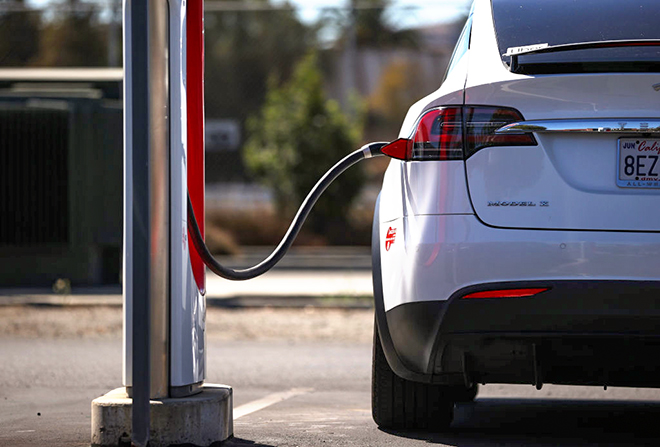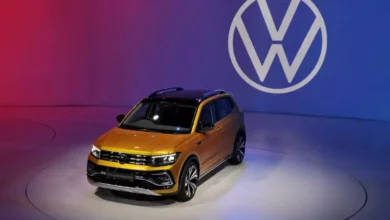Small Indian auto-parts manufacturers would lose jobs as the popularity of electric vehicles increases.

As manufacturers race to develop more electric vehicles, K. Rajesh finds himself at a crossroads in Coimbatore, a city that produced one of India’s first homegrown diesel engines. Rajesh, the owner of a small auto component manufacturer in Tamil Nadu, is a part of the supply chain that experts in the field predict will be disrupted as India quickens its switch to electric vehicles to further its climate goals. 
“For small players like me, the rise of electric vehicles means the business will go down,” declared Rajesh, owner of the two-wheeler component manufacturer Autotech Engineers.
“We are aware that the nature of the business will change, but for the time being, I am sticking to what I know and have been doing for the past 20 years, which is reproducing design drawings supplied by companies into flawless parts. But the future is uncertain,” he continued. His voice echoes the worries of others in the country’s small- and medium-sized auto component sector, which employs an estimated five million people. Millions more people work in unofficial maintenance and repairs.
In an unprecedented move, the state government of Tamil Nadu started mapping this supply chain last month to understand better the effects the switch to cleaner automobiles and scooters will have on businesses and their employees. According to V Arun Roy, secretary of the Tamil Nadu department for medium, small, and micro enterprises, “We know for a fact that there will be a serious loss of business. He added that they will need to be ready for the blow. There is currently insufficient knowledge regarding who and how many will be affected. Planning for the inevitable transition to electric vehicles requires mapping this data.
India wants to reduce its reliance on petroleum products and reduce the crippling air pollution in its cities while also fulfilling its national commitment to reduce planet-warming emissions from fossil fuel use to net zero by 2070. To this end, India sees clean auto technology as being at the center of its plans. According to official data, the government wants to increase the proportion of electric vehicles on Indian roads from the current 0.5% to 30% of all vehicle sales by 2030. It is providing businesses with billions of dollars in incentives to produce clean automobiles and the parts that go into them.
According to research released in September by McKinsey & Company and the Automotive Component Manufacturers Association, around 75% of the inventory for electric cars would be made up of parts that need new design and production techniques. According to the consultancy, manufacturers of electronics, plastic and rubber components, engine parts, and suppliers of internal combustion engine vehicle parts could all be impacted by the switch to electric vehicles.
Conversations regarding a “fair transition” to a low-carbon economy frequently concentrate on the move away from fossil fuels like coal, according to Ashwini Hingne, a senior manager in the climate program at the World Resources Institute India, but should be more inclusive. According to Hinge, whose research organization is collaborating with the Tamil Nadu government on supply-chain mapping, “the reality is that everyone in the value chain will have to make the change and therethere are many clusters of high-risk categories like the automotive sector and the many smaller manufacturers that supply it.
Eight employees work for 45-year-old Rajesh at his manufacturing facility. Like him, many people in Coimbatore own and operate small enterprises that are vital to India’s car industry. According to a well-known proverb, every car in India has at least one nut or bolt that was produced in Coimbatore, according to brake component manufacturer S Balakrishnan.”There will be 10 links to small manufacturing units if every street has 10 homes. These byways are home to many skilled workers who depend on the auto industry.
Researchers claim that local auto component producers in hubs like Coimbatore are a source of supply for both global and Indian original equipment manufacturers. They also note the extensive network of garages and scrap dealers connected to the sector. According to a 2019 report on India’s transition, as electric vehicles rely more on software and electronics, a scenario with 30% electric cars by 2030 may support around 20%–25 wer jobs than the internal combustion engine industry does now.This depends on the level of local manufacturing.
The workforce would need to undergo retraining and vocational education to prepare for new jobs in the electric vehicle industry, according to a report by two nonprofit organizations, the Council on Energy, Environment and Water and Shakti Sustainable Energy Foundation. The World Resources Institute India and government think tank Niti Aayog sponsored a webinar earlier this year on achieving a “fair transition” in the industry, and panelists there predicted that 20% to 40% of current occupations will become outdated.
Since electric vehicles have fewer mechanical components and require specialized electronics skills for maintenance, those impacted would include manufacturers, auto dealers, after-sales experts, and roadside technicians, they claimed. According to Vinnie Mehta, director general of the Automotive Component Manufacturers Association, the more than $50 billion auto component market in India is “writing on the wall. Mehta noted that the supply chains for two- and three-wheeled vehicles would be impacted first and that manufacturers would need to diversify.
Small players must have a vision and consider the new chances that are opening up, he continued. K Dhurgairaj founded GravitoTech Auto Components a year ago with a specific goal in mind: to gain access to the market for electric vehicles. The Coimbatore-based entrepreneur claimed that after spending years in the industry performing quality checks, it was time to begin research and development on the production of components for electric cars. Additionally, his business must receive third-party certification and adhere to specifications for components used in electric vehicles.
According to specialists in the field, manufacturers of auto parts will receive government incentives to develop parts for eco-friendly vehicles and to spend money on cutting-edge technology like sensors, automated transmissions, cruise control, and other electronics. According to Mehta of the Automotive Component Manufacturers Association, businesses are already collaborating with schools to look at ways to teach the current workforce and to look at developing skills for the electric car sector.
edited and proofread by nikita sharma




